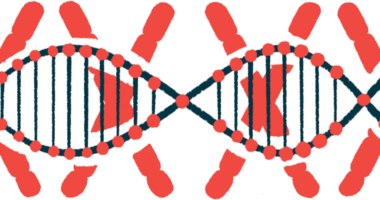Challenging Behavior in Children with Fragile X Affects Maternal Mental Health and Mother-child Bond, Study Finds

Challenging behavior such as hyperactivity and aggressiveness in children with fragile X syndrome have a negative impact on maternal mental health and on the relationship between mother and child, a new study suggests.
The study, “Child Challenging Behavior Influences Maternal Mental Health and Relationship Quality Over Time in Fragile X Syndrome,” was published in the Journal of Autism and Developmental Disorders.
Compared to normally developing children, children with fragile X tend to display more particularly challenging behaviors, such as being aggressive or destructive, which takes a toll on parents’ mental health. Most biological mothers of affected children carry a premutation in the FMR1 gene, which is associated with higher rates of mental illnesses such as anxiety and depression.
Of note, premutations mean 55 to 200 CGG repeats in FMR1, while full mutations (which cause fragile X) are characterized by more than 200 such repeats. (C stands for cytosine, and G for guanine, two of the four building blocks of DNA).
Studies about how child behavior and parental health change over time in families affected by fragile X are scarce. To address this knowledge gap and also to explore the effects on the mother-child relationship, researchers at University of Kansas analyzed 55 pairs of children with fragile X and their biological mothers.
Data were collected at three time intervals, when the children were approximately 9, 13.5, and 16 years old. The mean age of the mothers at these time points were nearly 40, 45.5, and 47 years old.
Mothers and children underwent a series of tests. The Positive Affect Index (PAI) was used to assess the strength of the mother-child relationship and the Childhood Behavior Checklist (CBCL) to analyze challenging behaviors in children as reported by their mothers.
Maternal mental health then was measured with Center for Epidemiological Studies Depression Scale (CES-D) and the Profile of Mood States (POMS), which evaluates anxiety and anger.
Results showed that almost all the measurements were consistent over time. The exception was CBCL, as the average scores were lowest at the last measurement, meaning less-challenging behaviors in children. This scale comprises so-called internalizing behaviors such as anxiety and depression, as well as externalizing behaviors that include hyperactivity and aggressiveness.
“[O]ur findings suggest that mother–child closeness may be a stable trait from childhood into adolescence in families with [fragile X],” the researchers wrote.
They then investigated how these measurements were associated with each other. The mother’s genetic status and use of psychiatric medications were taken into account.
The team found that, on average, for every point increase on the CBCL (which can indicate more frequent or more severe behaviors), mothers’ depression scores increased (worsened) by an average of 0.13, anger scores by 0.12, and anxiety scores by 0.11.
“[W]hen we consider an example wherein a child demonstrates eight additional challenging behaviors relative to his peers, his mother might report one point higher on the CES-D or POMS. Considering the clinical cut off on the CES-D is 16 [points], this may quickly push the mother into a concerning or even clinically significant range for depression,” the scientists added.
Both challenging behaviors in children and mental health in their mothers were associated with a weaker parent-child relationship. For every point increase on CBCL, there was as average 0.11-point decrease in PAI. For every point increase on the CES-D scale of mothers’ depression, the quality of the mother-child bond decreased by 0.33 points. Similar trends were seen for maternal anxiety and anger.
Overall, the data broadly support the idea that children’s behavior and their parents’ mental health are connected, and that these factors can take a toll on the parent-child link.
“Thus,” the researchers wrote, “it is important to monitor maternal well-being along with child challenging behaviors as these could have lasting effects on the relationship between the mother and child.”
They added: “[C]linical interventions might focus in part on ensuring that child challenging behaviors, maternal mental health, and mother–child relationship quality remain positive and stable in families with [fragile X].”






